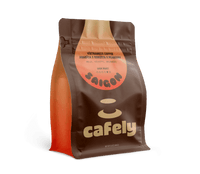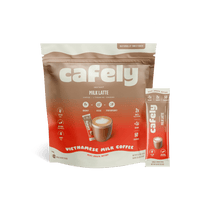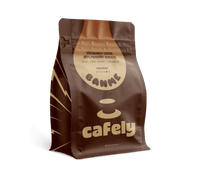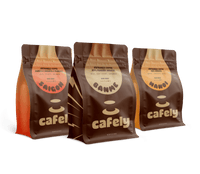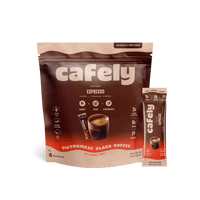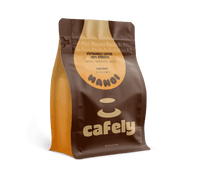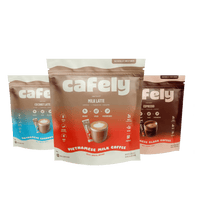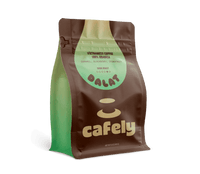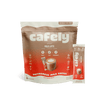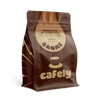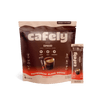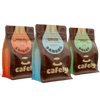Waking up with a pounding head after a big night can feel horrible. Thankfully, coffee has some impressive properties that can help ease those symptoms and get you back on your feet. But is this the best beverage for your hangover?
In this article, we’ll explore the science behind ensuring a swift recovery after a night of drinking.
What Is a Hangover?
Essentially, the main issue that a hangover represents is intense dehydration after a session of drinking. Alcohol is a diuretic, meaning that it makes you need to pee more frequently.
So, any fluids that you drink while on your big night out, including non-alcoholic ones, will likely be voided quickly. On top of this, fluids from the rest of your body will likely be diverted to make sure no one organ is short of anything that it might need. The resulting dehydration leads to several different knock-on effects.
Hangover Symptoms
One of the main feelings that people experience during a hangover is a foul headache and some general body aches. These are both down to acute dehydration, and the pain is your body’s way of telling you that you need more liquid. Have you had a headache when thirsty on a hot day? This headache is similar to a hangover brought upon by dehydration.
The other feeling that people often report is one of nausea and weakness. These side effects are partially down to any alcohol that may still be in your system, but they may also be caused by dehydration.
For your body to process any of the salts, vitamins, and minerals in your system, those items must first dissolve in your blood. If you’re dehydrated, then there’s a little less blood in your system, meaning that your body cannot access these minerals. This lack of sugars and salts is what leads to a feeling of weakness and trembling in some people during a hangover.
Ways to Recover From a Hangover
So, how can you help yourself the next time you’re hungover? Well, the main thing to do is to drink plenty of water. Not only will the water help to rehydrate you, it will lead to your kidneys doing more work as they process the fluids, remove toxins from your body, and excrete both.
However, it’s also wise to avoid drinking too much water — your body can only absorb so much at once. Generally speaking, when rehydrating while hungover, aim to drink around 250 mL every twenty minutes or so. Most people can consume around 750 mL in an hour at maximum, so drinking any more than that is usually pointless.
Coffee and Hangover Recovery

To some extent, coffee may help you recover slightly from your hangover symptoms. However, it may also make things a little worse for you.
Let’s start with the bad news — coffee is also a diuretic like alcohol. If you drink coffee while you’re hungover and very dehydrated, it's likely to make your dehydration, and in turn, your headache, worse.
You might also notice a stronger, caffeinated smell of pee after drinking several cups.
But why does coffee cause headache in some people?
Your headache may be partially caused by caffeine withdrawal symptoms, especially if partying the night before led you to sleep in later and delayed your cup of coffee. If this is the case, having a strong cup of coffee to calm the caffeine cravings won’t hurt. Still, make sure to drink plenty of water to help your head.
As for pee smelling like coffee, it's a common and harmless side effect due to the way our bodies process both caffeine and its aromatic compounds.
Home Remedies for Hangovers
There must be a thousand different home remedies out there to get rid of a hangover, and people all have their own rituals for the morning after. Though medical studies insist no “cure” exists, there are some that can help to improve your hangover. Let’s talk about two here.
Burned Food
Some believe that the charcoal-like substance produced by overcooking food helps reduce the side effects of hangovers. Charcoal is a natural filter that can absorb many different toxins from the stomach and bloodstream. As a result, some people believe overcooked and burned food can help remove the alcohol from their system and the hangover with it.
However, the research is very mixed on the matter. One study found that consuming charcoal at the same time as alcohol can prevent the blood alcohol level from rising in animals [1]. Another study does note, however, that in humans, alcohol is generally absorbed from the gut too quickly for activated charcoal to absorb it [2].
On the flip side, eating food more generally will help with your hangover to some extent. Recovering from a hangover is all about getting plenty of nutrients into your body, so a hearty meal will help you do just that, regardless of whether the food is burned.
Fatty Food
Another common myth is that a breakfast high in fat can help quell a hangover or outright stop it in its tracks.
But eating food high in fat after doing a lot of drinking may make things slightly worse. This could be the case because fatty food can tend to upset the digestive system in some people, and if you’ve already got a bad stomach from drinking, further agitation is likely not wanted.
However, eating greasy foods may help some people to slow the absorption of alcohol into the blood. This is only really helpful if you eat the food before doing any drinking, so it’s not ideal advice for the middle of a hangover. So, stopping for something unhealthy on the way home might help if you still have undigested alcohol in your stomach.
How to Pick the Best Coffee for Your Hangover
Finding the best coffee for your hangover might include some trial and error, but it’s certainly out there.
Here are some of the things you should look for when choosing coffee:
- Organically Grown: Buying certified organic coffee means farmers use growing practices to eliminate man-made chemicals from getting into your cup.
- Certified Mold-Free: Mold can produce mycotoxins in poorly dried and stored coffee beans. These toxins can weaken the immune system and hinder certain bodily functions. Reputable brands will have certifications guaranteeing their coffee is mold-free.
- Sugar-Free: High sugar content could dehydrate you further, so choosing sugar-free coffee options, even in instant form, will help avoid further bothering your stomach.
- Freshly Roasted: Freshly roasted beans will always have a better flavor and will not have lost as many potentially helpful phytochemicals as stale beans may have.
- Freshly Ground: Grinding coffee increases its surface area, so it increases the rate at which it loses natural oils and other helpful chemicals. You can buy freshly ground coffee or beans and grind them at home.
- Country of Origin: Aim for a region with a darker, richer flavor — Vietnamese coffee has a strong, no-nonsense flavor that can cut through a hangover.
Arabica vs. Robusta vs. Blend

The two main species of coffee beans are arabica and robusta — they have a few key differences that could impact your hangover.
Arabica beans have a slightly higher sugar and fat content than robusta coffee. So, their flavor is a little more complicated and delicate, and they fare well when roasted more lightly than robusta usually is.
A high-quality arabica coffee will have caramel, berry, and stone fruit notes. While it may be what you prefer on an ordinary day, arabica’s light, slightly acidic notes mean we wouldn’t recommend it when you’re hungover.
Instead, our main suggestion for recovering from a hangover would be robusta beans. They contain more caffeine than arabica, meaning that they can give you the kick you need to get up and do things. Furthermore, they have a darker, richer, earthier flavor overall. This complex and strong flavor is a potent and explosive way to bring you out of the delicacy of a hangover.
Blends can be another useful tool for pulling yourself out of a hangover. In a top-notch blend, the arabica and robusta beans work together to create a flavor greater than the sum of their parts.
In a blend, robusta will bring a rich, earthy base to the flavors, while arabica will bring some bright and fruity notes, and peaberry beans could offer a much higher caffeine content. For a hangover, this complex and potent bouquet could be the perfect thing to wake your system up.
Dark Roast, Medium Roast, and Light Roast
It’s no secret that different roast levels bring different flavors to the coffee beans and, therefore, to your cup. Not all roasts are ideal for a hangover, though, so let’s get into it.
A light roast will preserve the flavors of the green coffee bean, meaning that the final cup will have a slightly roasted flavor but will also have plenty of citrus and floral notes. These roasts are ideal for a fascinating tasting session, but intense citrus or fruit may make those with a hangover feel a little more nauseous.
A medium roast is a fantastic all-rounder. Generally, a skilled roaster will bring beans to this level to preserve the best bits of the nutty and citrus flavors in the plant while also increasing the overall sweetness of the drink by caramelizing the bean’s inherent sugars. These can be a great choice for a hangover — straightforward while also being complex enough to distract you from feeling under the weather.
When hungover, a dark roast may be the best option. During the long processing time of a dark roast, coffee beans’ natural sugars are drawn out and caramelized. The final drink has a rich, earthy flavor that’s balanced with dark chocolate and malt notes. Together, this creates a smooth drink that sounds ideal for a hangover.
What’s the Best Way to Prepare Coffee for Your Hangover?
Perhaps the best way to prepare a coffee for your hangover is quickly and quietly. To achieve that goal, we would recommend looking into the best healthy coffees that can provide you with a potent caffeine hit, paired with specially selected ingredients to create a healthy and smooth beverage without harsh crashes, even on those trickier mornings.
While they won’t stop a hangover dead in its tracks, they can certainly set you on the right path.
Choose a coffee designed to be sipped and savored slowly. Milky coffee such as lattes (or caffè lattes), and silky smooth flat whites are great if you want something hot. Cold brews and refreshing iced coffees are ideal for “cooling” that heavy head after a big night out.
Taking on more fluids in this way is a great way to ensure your body rehydrates and can help quell your hangover more quickly.
FAQs: Coffee and Hangovers

Let’s go through some quick FAQs to make sure we’re all on the same page about hangovers.
1. What Is a Hangover?
A hangover is, mostly, a result of being acutely dehydrated following a night of drinking. This can result in an intense headache and feelings of nausea, grogginess, and weakness.
2. How Is Best to Recover From a Hangover?
Drinking plenty of water is the best way to recover from a hangover. Not only will you rehydrate your body, but you’ll empower your kidneys to filter toxins out of your blood quickly and efficiently. A hearty meal full of nutrients is also a good idea.
3. Can Coffee Help With a Hangover?
Yes and no. Coffee contains caffeine, which is a diuretic and may make the symptoms of dehydration worse. However, if you’re a regular coffee drinker, you may find that part of your headache is down to a lack of caffeine that particular morning. A cup of coffee can always help calm the caffeine withdrawal symptoms.
4. What Coffee Is Best for Helping a Hangover?
The best way to recover from a hangover is to get additional vitamins and minerals into your system, along with plenty of water. Therefore, the best coffee to help with a hangover would be one with a lot of nutrients and little caffeine. Consider having a decaf latte, as the additional calories and proteins in the milk may help with your hangover a little.
5. How Can You Make Coffee Help a Hangover More?
The best way to cure a hangover is by being as hydrated as possible. So, take the time to ensure you have your coffee as part of a hearty, balanced breakfast. Eating and drinking plenty of different things will help considerably.
References
- Hultén, B. A., Heath, A., Mellstrand, T., & Hedner, T. (1986). Does alcohol absorb to activated charcoal?. Human toxicology, 5(3), 211–212.
- Juurlink, D. N. (2015). Activated charcoal for acute overdose: A reappraisal. British Journal of Clinical Pharmacology, 81(3), 482.
